
Mary J. Boote serves as Chief Executive Officer of the Global Farmer Network and Global Farmer Network Foundation, a nonprofit advocacy group based in Des Moines, IA, formed and led by farmers committed to insuring the farmers voice is engaged in the global dialogue regarding food and nutritional security. She served as agriculture adviser to Iowa Gov. Terry Branstad from 1997–1999. Ms. Boote has participated in agriculture leadership missions to the Soviet Union (1990) and Hungary (1991, 1992) with emphasis on strategic planning for privatized agriculturalists in newly independent countries. She participated in the World Trade Organization meeting in Hong Kong (2005) and an ACDI/VOCA study tour looking at smallholder maize projects in Kenya and Tanzania (2009). In 2011, she received a gubernatorial appointment to serve as a commissioner on the Iowa Environmental Protection Commission, and was elected chairwoman in 2013. In 2015, Scientific America Worldview named her as one of the Worldview 100: Global industry’s 100 visionaries in biotechnology. Raised on an Iowa family farm, Boote attended Northwestern College, Orange City, IA and has completed the Harvard Business School Agribusiness Seminar. She is a partner in Policy Management Interests, LLC, a public policy management firm that provides issue education, grassroots project implementation and capital campaign fundraising leadership to a variety of agriculture-focused projects.

Jon’s interest in genetics arose from a family history of breast and ovarian cancer, which led to the writing of two books on population genetics: Abraham’s Children: Race, Identity and the DNA of the Chosen People (2007) and Taboo: Why Black Athletes Dominate Sports and Why We’re Afraid to Talk About It (2001). He’s also written on the politics of food and farming: Let Them Eat Precaution: How Politics is Undermining the Genetic Revolution in Agriculture (2005) and Crop Chemophobia: Will Precaution Kill the Green Revolution? (2006); and on science and risk: Scared to Death: How Chemophobia Threatens Public Health. Jon has been a contributing columnist at hundreds of media outlets around the world. He spoke before the National Academy of Sciences and the Australian National Press Club on GMO safety. Before becoming a print journalist, Jon was a producer and executive for 20 years at NBC News and ABC News, winning 20 journalism honors, including a National Press Club Consumer Journalism Award and Emmys for specials on the reform movements in China and the former Soviet Union. He was head of documentaries and Tom Brokaw’s long-time producer at NBC News. He studied philosophy in college and received a National Endowment for the Humanities Fellowship at the University of Michigan.

Nina V. Fedoroff received her Ph.D. in Molecular Biology from the Rockefeller University and has served on the faculties of the Carnegie Institution for Science, the Johns Hopkins University, the Pennsylvania State University, and the King Abdullah University of Science and Technology in Saudi Arabia. Fedoroff has published three books and more than 160 scientific papers. She is a member of the U. S. National Academy of Sciences the American Academy of Arts and Sciences, the European Academy of Sciences, and the American Academy of Microbiology and is a 2006 National Medal of Science laureate. Fedoroff served as the Science and Technology Adviser to the Secretary of State and to the Administrator of the US Agency for International Development (USAID) from 2007 to 2010. She was President of the American Association for the Advancement of Science (AAAS) from 2011 to 2012. Fedoroff is member of the External Faculty of the Santa Fe Institute and serves as Senior Science Advisor to OFW Law, Washington, DC.
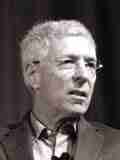
Geoffrey Kabat, cancer epidemiologist and author, most recently of Getting Risk Right
Over a forty-career as a cancer epidemiologist at the Albert Einstein College of Medicine and Stony Brook University, Geoffrey has studied a wide range of lifestyle, clinical, and environmental factors associated with the risk of cancer, other diseases, and mortality. Major topics of interest include smoking, alcohol, diet, physical activity, hormones, obesity, the metabolic syndrome, sleep, and exposure to chemical contaminants and electromagnetic fields. He has published over 150 peer-reviewed scientific papers in the foremost epidemiology and cancer epidemiology journals. As a practicing epidemiologist, he has had a long-standing interest in how health risks are studied and communicated to the public. His book Hyping Health Risks: Environmental Hazards in Daily Life and the Science of Epidemiology (2008) is considered a classic in risk analysis and communication. His recent book Getting Risk Right: Understanding the Science of Elusive Health Risks (2017) emphasizes the importance of distinguishing between path-breaking scientific work and flimsy research that gets sensationalized by appealing to the public’s fears. He writes a regular column for Forbes on the perception vs. the reality of health risks.

Professor Kershen, who joined the OU law faculty in 1971, taught agricultural law, legal history, professional responsibility and water rights. Beginning in 1997, focused his teaching, research and lecturing on agricultural biotechnology law and policy. After receiving his JD in 1968, he joined a private practice in Atlanta. In 1973, he was named a fellow in law and humanities at Harvard University. He has held visiting professorships at the universities of Kansas, Illinois and Arkansas Little Rock. He has taught at the University of Arkansas-Fayetteville, Oklahoma City University, the University of Texas and Texas Tech. Kershen is coauthor of Farm Products Financing and Filing Service, written in 1990 with J. Thomas Hardin, and has authored more than 50 other book chapters, grant reports and law review articles. Kershen is a past member of the Board of Directors and past president of the American Agricultural Law Association. He served as a trustee to the Rocky Mountain Mineral Law Foundation from 1991-1995. Additionally, Professor Kershen was a Fulbright Teaching Scholar to Honduras in 1999, and served as the Co-Reporter for the UCC Article 7 Revision Committee from 2000-2003.

Ben Locwin, Ph.D., M.B.A., M.S., is an author and speaker in the healthcare, pharmaceutical, and life sciences industries. He has worked on therapies for oncology, immunology, dermatology, neurology, and other therapeutic areas, including autologous stem cell therapies, gene and cell therapies, and CAR-T treatments. He has consulted for many industries including hospitals, aerospace, food & beverage, automotive, and pharmaceuticals. He has been featured by Associated Press, CDC, Fox News, Wall Street Journal, Forbes, USA Today and other top-tier media outlets. Ben has degrees in astrophysics, behavioral neuroscience, organizational leadership, and an MBA. He also holds a certification in risk analysis, and master certification as a Six Sigma Master Black Belt. He is a member of several advisory boards for non-profit and for-profit entities, and provides advice and guidance to many top companies.
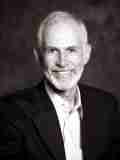
Matt Winkler, former associate professor cell and molecular biology, University of Texas, chairman and founder of Asuragen and Ambion; chairman of the Winkler Family Foundation
Matthew M. (Matt) Winkler obtained a Bachelor of Science in Genetics and a Ph.D. in Zoology from the University of California at Berkeley. After postdocs at the University of Hawaii Kewalo Marine Lab and the University of California at Davis, he became an Assistant Professor of Zoology at The University of Texas at Austin in 1983. Five years later, he was promoted to Associate Professor and also founded the biotechnology company, Ambion, Inc. In 1991, Winkler left UT to devote his full-time energies to Ambion. Ambion became the preeminent “Molecular Biology Tools Company” focused on RNA. Its headquarters were in Austin, TX, with subsidiaries in Cambridge England and Tokyo, Japan. In 2005 with almost 400 employees Ambion was sold to Applied Biosystems. Winkler took about 100 employees to form Asuragen which develops human diagnostic products for cancer and genetic diseases. Asuragen currently has about 160 employees and does business in over 60 countries. He recently received a “Land Steward Award” from Texas Parks and Wildlife for how he has been managing his ranch. He is a board member of The Breakthrough Institute and Revive and Restore. Winkler is a member of the board of his local public TV station, KLRU, the Advisory Council for the College of Natural Sciences and the UTeach Advisory Council.
Media Science

Editor-in-Chief of Bio•IT World, Kevin is the author most recently of The $1,000 Genome and Cracking the Genome (2010). He was the founding editor of Nature Genetics, the world’s leading genetics journal, which he headed for its first five years. He has also written for the Times (London), Boston Globe, New England Journal of Medicine, and New Scientist, among others. His first book, Breakthrough (1995), co-authored with Michael White, told the story of the race for the BRCA1 breast cancer gene. Davies holds an M.A. in biochemistry from the University of Oxford and a PhD in molecular genetics from the University of London. He held postdoctoral fellowships at MIT and Harvard Medical School before moving into science publishing as an editor with Nature magazine.

Science Writer Elizabeth holds a PhD in biochemistry and was a professional research scientist before becoming a journalist, focusing on human and agricultural genomics. She is author of Genome Generation (Melbourne University Publishing, 2011) and Stem Cells: Controversy at the frontiers of Science (2005), which won a Queensland Premier’s Literary award and was a finalist for the Australian government Eureka award for promoting the public understanding of science. She has won the Amgen and MBF awards for medical journalism, the Michael Daley award for best radio feature broadcast, the Bell Awards’ categories for ‘Best feature writer’ and ‘Best analytical writer’ and a 2011 National Press Club of Australia and Universities Australia Higher Education Journalist of the Year.
Science & Risk Communication

Geoffrey Kabat
A cancer epidemiologist at the Albert Einstein College of Medicine, Geoffrey studied a wide range of lifestyle, clinical, and environmental factors associated with cancer and other diseases, including smoking, alcohol, diet, physical activity, hormones, obesity, the metabolic syndrome, and exposure to chemical contaminants and electromagnetic fields. He has published over 140 peer-reviewed scientific papers. As a practicing epidemiologist, he has had a long-standing interest in how health risks are studied and communicated to the public. His book Hyping Health Risks: Environmental Hazards in Daily Life and the Science of Epidemiology (2008) is considered a classic in risk analysis and communication. His new book Getting Risk Right: Understanding the Science of Elusive Health Risks (2017) emphasizes the importance of distinguishing between path-breaking scientific work and flimsy research that gets sensationalized by appealing to the public’s fears. He writes a regular column for Forbes on the perception vs. the reality of health risks.

Gary L. Kreps
Chair, Department of Communication, George Mason University, Gary held the Mandell Endowed Chair in Health Communication from 2004 to 2010. He serves on the Governing Board of the Center for Social Science Research, and is a faculty affiliate of the National Center for Biodefense and Infectious Diseases, the Center for Health Care Ethics and Policy, the Center for International Medical Policies and Practices, Center for Health Information Technology, Center for Consciousness and Transformation, and the Center for Climate Change Communication at GMU. Prior to his faculty appointment, he served for five years (1999–2004) as the founding Chief of the Health Communication and Informatics Research Branch at the National Cancer Institute. He was the Founding Dean of the School of Communication at Hofstra University, Executive Director of the Greenspun School of Communication at UNLV and in faculty and administrative roles at Northern Illinois, Rutgers, Indiana, and Purdue Universities.
Human Genetics
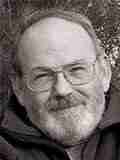
Henry Harpending
Thomas Chair Distinguished Professor of Anthropology, University of Utah, Henry earned his PhD at Harvard in 1972 and is credited with developing the “Out of Africa” theory of evolution. He has broken new ground in anthropology and human biology by applying mathematical models to genetic and morphometric variation, examining hypotheses such as population growth, divergence and gene flow. He is a member of the National Academy of Sciences and co-author with Gregory Cochran of The 10,000 Year Explosion: How Civilization Accelerated Human Evolution (2009). They found evidence that our species had only a few thousand members during the last interglacial and that there were several subsequent demographic expansions, the earliest among the ancestors of contemporary sub-Saharan Africans. Dr. Harpending died in 2016.
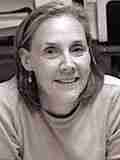
Director, Human Genetics Graduate Program, Sarah Lawrence College, Caroline is head of the largest genetic counseling training program in the United States, with more than 600 graduates and links to 50 genetic centers around the country. She received her MS in Human Genetics from Sarah Lawrence and her BS from the University of California-Davis. She is also an ABGC licensed genetic counselor and member of the Transnational Alliance for Genetic Counseling.
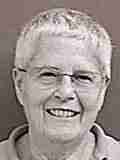
Professor Emeritus, Hebrew University-Hadassah Medical School, Ariella has held the Henri and Erna Leir Chair in Molecular Biology & Cellular Medicine since 1999 and has been a faculty member since receiving her PhD in Biochemistry from the University of California, Davis in 1966. In 1998 she established the Ethics in Research Committee at the Hebrew University and chaired the Committee. She also participated in the formulation of Israel’s Genetic Information Law and was both a participant and head of ad-hoc committees of the Ministry of Health and of the Ministry of Science on ethical issues in genetics and gene therapy. She helped establish the Gene Therapy Institute at Hadassah in 1992, and since 2003 has been a member of the steering committee of the Israeli National Center For Gene Therapy. She is a member of the National Helsinki Committee, which serves as an advisory committee on ethics to the Ministry of Health.
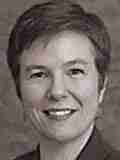
President, CEO, Genetic Alliance, Sharon runs a network of thousands of genetic disease-specific advocacy organizations. A former college chaplain, she is the CEO of PXE International, a research advocacy organization for the genetic condition pseudoxanthoma elasticum (PXE), which she founded following the diagnosis of her two children. She is also co-founder of the Genetic Alliance Biobank, a centralized biological and data repository on genetic diseases. She serves on the boards of the Institute of Medicine Science and Policy Board, GRAND Therapeutics Foundation, the Center for Information & Study on Clinical Research Participation, The Biotechnology Institute, National Coalition of Health Professional Education in Genetics and the Coalition for 21st Century Medicine. She is on the editorial boards of Genetic Testing and Biomarkers, Biopreservation and Biobanking, and Journal of Postgenomics: Drug & Biomarker Development, and the Google Health and Rosalind Franklin Society Advisory Boards. She is the chair of the Coalition for Genetic Fairness, which was instrumental in the passage of the Genetic Information Nondiscrimination Act.
Food Security

Executive Secretary, Foundation for Biotechnology Awareness and Education, Chavali has over 40 years of academic experience in botanical sciences, particularly phytochemistry, plant diversity, databases of medicinal plants and computer applications in plant systematics. He was the chairman of the Departments of Botany Sericulture at the Bangalore University. FBAE is a non-profit striving to enhance public awareness and raise standards of education and training in biotechnology. He serves on several policy committees of the Department of Biotechnology and Ministry of Environment and Forests in India and life science research policy committees of the US National Academies of Sciences and the World Health Organization.
Legal & Ethics
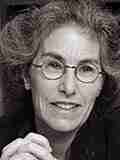
Laurie Zoloth
Dean of the University of Chicago Divinity School and Margaret E Burton Professor at the University of Chicago. Former director, Center for Bioethics, Science and Society; Professor, Medical Ethics, Religion, Northwestern University, Laurie was Professor of Ethics and Director of the Program in Jewish Studies at San Francisco State University before coming to Northwestern. She is past president of the American Society for Bioethics and Humanities and served on its founding board for two terms, receiving the Society’s award for Service to the Field. She is the former Chair of the Howard Hughes Medical Institute’s Bioethics Advisory Board, an executive board member of The Society for Women’s Health Research, and served on the advisory boards of the Robert Wood Johnson’s Project on Excellence at the End of Life, the American Association for the Advancement of Science’s Working Group on Human Germ-Line Interventions and on Stem Cell Research, the Ethics Section of the Louis Finkelstein Institute for Jewish Social Ethics and the Park Ridge Center’s Project on Judaism and Bioethics. She received an NIH ELSI grant to explore the ethical issues after the mapping of the human genome and was named principal investigator of the International Project on Judaism and Genetics, which was co-sponsored by the AAAS and supported by the Haas Foundation and the Greenwall Fund. She is on the editorial boards of the American Journal of Law, Medicine and Ethics, the Journal of Clinical Ethics and the American Journal of Bioethics.

